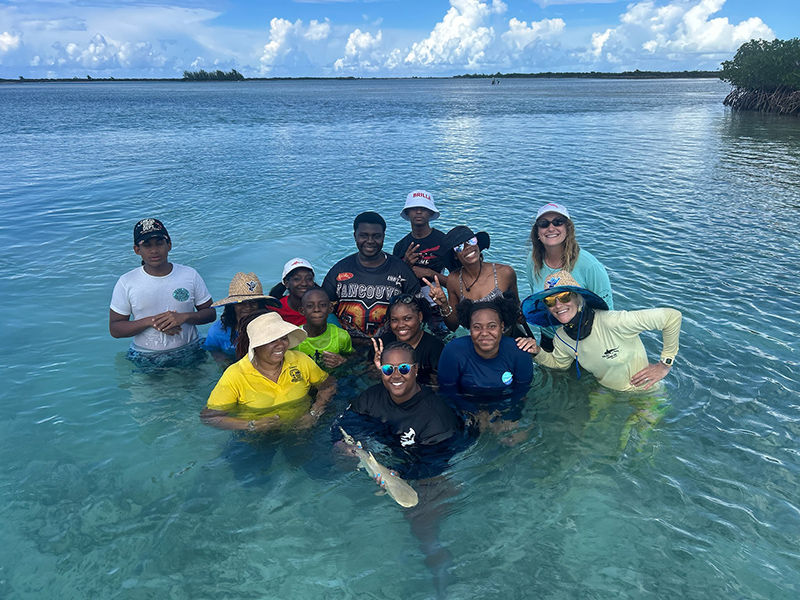You Don’t Have to be on the Coast to be a Marine Scientist.
- Sharks4Kids

- Sep 8, 2021
- 3 min read
Author: Hunter Wortmann
Growing up in the land-locked state of Illinois I was rarely around the ocean. I did not have the opportunity to feel the salt crusted on my face after a swim in the bay or a sunset surf. I was lucky enough to satisfy my salt crave and natural wonder as I had the opportunity to travel to different places like Mexico, Costa Rica and Belize and be in the presence of marine life. As a kid I was amazed by the magical creatures who could breathe underwater, or move with such grace as the sting ray, have as many tentacles as the octopus or seem as menacing as the shark. As I grew up and learned more from my own research and the following of marine scientists online, I began to question what we knew about the marine fauna and how one could pursue this water-bound path.
I grew up a water baby being near Lake Michigan and venturing across the border to explore other lakes in Wisconsin. My love for the water began with these calm lakes and the plethora of activities they provided: water skiing, tubing, swimming, boating, sailing, and windsurfing. But that wasn’t enough. I craved more of these water sports so naturally the next step was to seek out a bigger body of water. When it was time to apply to college, I applied all over the U.S. Everywhere I applied had to have one thing in common, it must be near a body of water. When I got accepted at the College of Science and Math to study Marine Science at Cal Poly SLO, I was set. Not only could I fill my desire to be immersed in the ocean, I could study it.

At college I took on the ocean with gusto; I taught myself how to surf and free dive and flew through the kelp forests for the first time as a scuba diver like the beautiful rays I had seen as a child. What I discovered in my college classes and throughout different internship experiences was that you don’t have to be on the coast to be a marine scientist. There is so much to be done when it comes to conserving our oceans and all its living things and many of those steps start inland. All waterways lead to the ocean and that means that whatever evil occurs in land-locked countries and states eventually cascades to the ocean. The pollution that happens all over the world has to start somewhere and has one final destination: our world’s oceans. By recycling and reducing your use of one-use plastics, you can make a huge difference in how much trash is entering our oceans. Through acts like this, you can start by learning how your personal footprint is impacting the environment. The next step up would be to learn about how your community has an effect on the ecosystem and what can be changed for the better. In my opinion, the most important step you can take to help all living things is simply to learn more and be curious about ocean and its inhabitants. By following your passion and educating others about what you have learned no matter where you are in the world, the change can start with you.





















